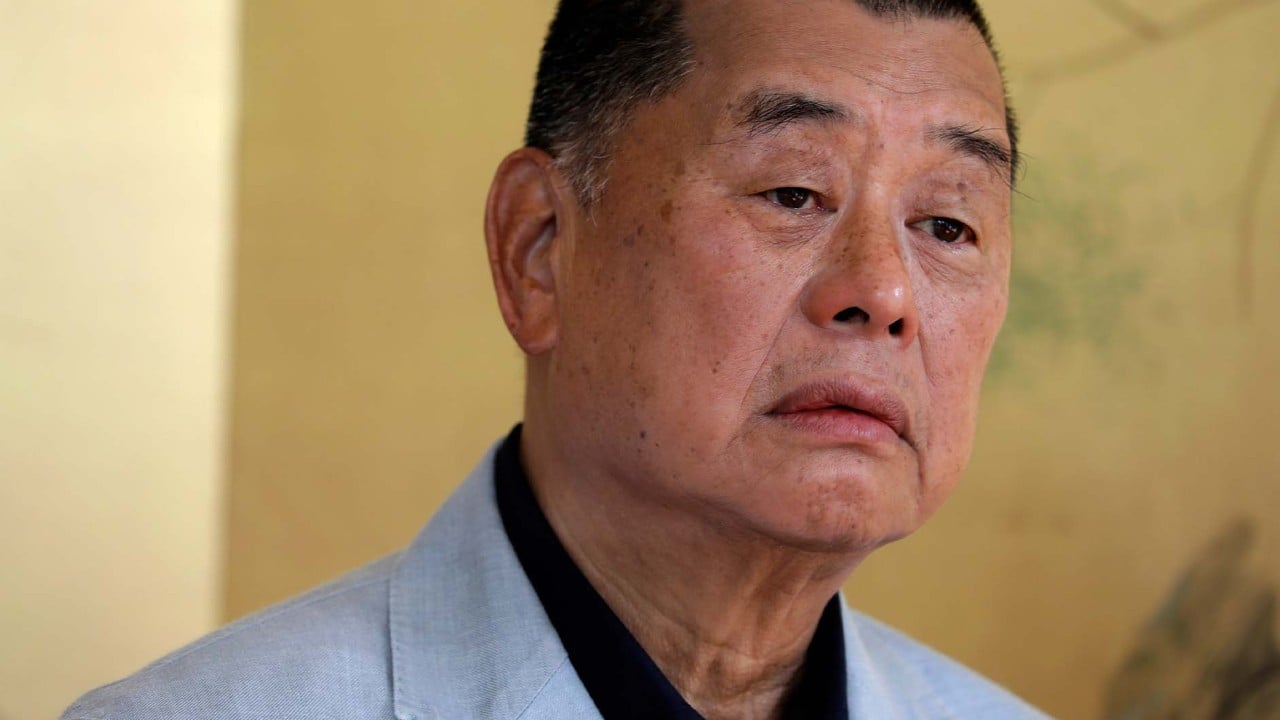
Hong Kong national security law: proposed legal change giving city leader final say on role of foreign lawyers in cases won’t be retrospective
- Justice minister Paul Lam gives first official confirmation of reach of new rule, sparked by collusion case involving jailed tycoon Jimmy Lai
- But Lam, who was addressing lawmakers, did not rule out resorting to other means to block earlier applications

The Department of Justice proposed a series of amendments to the Legal Practitioners Ordinance last month which will require courts to obtain the chief executive’s approval before a foreign lawyer is allowed to take on a national security case. The city leader can deny permission if the counsel’s participation is deemed “contrary to the interests of national security”.
Lam confirmed for the first time during the meeting that the proposed changes would not be retrospective, but hinted that previous applications such as Owen’s could still be barred.
“We cannot rule out the possibility that some previous applications involved national security. I believe there will be other ways to handle them. But that has nothing to do with the amendments,” he said.
Overseas lawyers could be ‘banned from Hong Kong security trials within 6 months’
Some lawmakers previously pointed to existing administrative mechanisms, arguing that immigration authorities could deny Owen entry into the city.
Earlier this month, the Department of Justice introduced two new requirements on top of the amendments first proposed in February for a foreign counsel to take up a national security case.
Under the latest plan, an overseas lawyer would first need to obtain a “Notice of Permission to Proceed” issued by the city leader before filing for ad hoc admission with the court.
The court should then seek a certificate from the chief executive before granting a foreign lawyer such admission, and these decisions would also be subject to a review mechanism led by the city leader.

Lam on Friday said the new review mechanism was to allow the court and the justice secretary to seek reviews on the certification from the chief executive or grant ad hoc admission in light of any changes in circumstances.
He also said both rounds of the chief executive’s decisions were final and not subject to any legal challenges, including judicial reviews.
Hong Kong ‘should impose blanket ban’ on foreign lawyers taking on security cases
Lam added that when the chief executive considered applications, he or she should determine if national security elements were tied to a case, as well as in the said lawyer’s involvement. He did not elaborate on the time limit for the city leader to make a decision.
He added his department would also offer legal advice to the chief executive during the decision-making process if needed, but noted there would be “firewalls” to avoid conflicts of interest.
“We will also hire external barristers to join in giving legal advice to the chief executive,” Lam said.
Can Beijing influence national security court disputes in Hong Kong after ruling?
Bar Association chairman Victor Dawes welcomed the government proposal to seek a case-by-case approach when resolving the question of whether an overseas lawyer could be admitted to handle national security cases rather than imposing an outright ban.
But he called on the administration to offer a more detailed definition of national security, and leave it to the court to decide whether the ad hoc admission required a review, instead of also allowing the justice minister to make the same request.
“Taking into account the interests of the plaintiffs, I think it is better to leave the court to decide if a review is needed,” he said.

Barrister Jonathan Caplan KC echoed Dawes’ remarks, saying it was important for the chief executive to keep a “tight focus” on the details of each case before issuing a certificate deciding whether a foreign lawyer could take part.
Citing the Beijing-imposed national security law’s requirement that defence counsel keep confidential any secret information disclosed during a case, Caplan said he hoped lawyers could be trusted to comply with that duty regardless of whether they were local residents or not.
Bar Association head calls for rethink on ban on foreign counsel national security cases
Ronny Tong Ka-wah SC, a member of the Executive Council, the city’s key decision-making body, said national security was more of a political issue than a legal one.
One should rely on the executive branch to oversee national security matters since office holders “possessed related intelligence which is often not suitable to show to the public”, he explained.
At Friday’s meeting, justice minister Lam also sought to soothe concerns from Law Society members over whether it was cost-effective under the amended proposal to have the city’s leader adjudicate on the same matter twice.
He said the pre-application vetting was meant to screen out “unmeritorious applications”, which would waste the valuable time and resources of the courts, the parties involved and the city leader.
He also rejected calls by lawmaker Ambrose Lam San-keung, who represents the legal sector, for a blanket ban on all overseas barristers taking part in national security cases, saying the proposed approach would have the least impact on the existing system.
What Beijing ruling on overseas lawyers in Hong Kong national security cases means
The debate was sparked by Lai’s legal battle with the justice department over hiring Owen to defend him against a charge of colluding with foreign forces.
After prosecutors initially failed to bar Owen from the case, they appealed to the top court, which sided with Lai, triggering an unprecedented request by city leader John Lee Ka-chiu for Beijing to interpret the national security law.
The legal amendments were introduced on the heels of the ruling by the National People’s Congress Standing Committee, the nation’s top legislative body, which effectively left the decision in Hong Kong’s hands.
Additional reporting by Lilian Cheng


